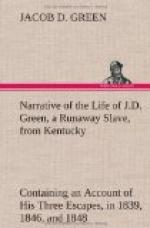* * * * *
WHAT THE “TIMES” SAID OF THE SECESSION IN 1861
(From the Liverpool Daily Post, Feb. 3, 1863.)
The following article appeared as a “Leader” in the Times on the 7th of January, 1861:—
“The State of South Carolina has seceded from the Union by a unanimous vote of her legislature, and it now remains to be seen whether any of the other Southern States will follow her example, and what course the Federal authorities will pursue under the circumstances. While we wait for further information on these points, it may be well to consider once again the cause of quarrel which has thus begun to rend asunder the mightiest confederation which the world has yet beheld. One of the prevalent delusions of the age in which we live is to regard democracy as equivalent to liberty, and the attribution of power to the poorest and worst educated citizens of the State as a certain way to promote the purest liberality of thought and the most beneficial course of action. Let those who hold this opinion examine the quarrel at present raging in the United States, and they will be aware that democracy, like other forms of government, may co-exist with any course of action or any set of principles. Between North and South there is at this moment raging a controversy which goes as deep as any controversy can into the elementary principles of human nature and the sympathies and antipathies which in so many men supply the place of reason and reflection. The North is for freedom, the South is for slavery. The North is for freedom of discussion, the South represses freedom of discussion with the tar-brush and the pine fagot. Yet the North and South are both democracies—nay, possess almost exactly similar institutions, with this enormous divergence in theory and practice. It is not democracy that has made the North the advocate of freedom, or the South the advocate of slavery. Democracy is a quality which appears on both sides, and may therefore be rejected, as having no influence over the result. From the sketch of the history of slavery which was furnished us by our correspondent in New York last week, we learn that at the time of the American Revolution slavery existed in every State in the Union except Massachusetts; but we also learn that the great men who directed that revolution—Washington,




